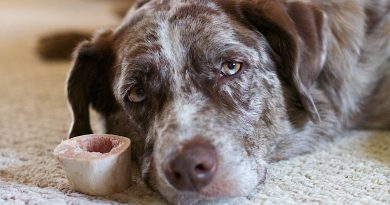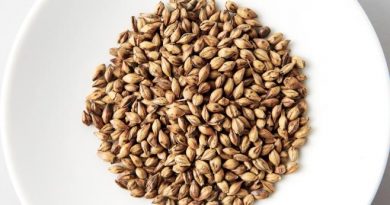Vitamins and Minerals Your Dog Needs

A well-balanced, high-quality dog food will help your dog meet all its nutritional needs. Check the nutritional label of your dog’s food for necessary vitamins and minerals, advises Dr. Katy Nelson, a veterinarian. While these can be posted as separate ingredients, you also might simply find sources listed. For instance, animal by-products are a good source of many vitamins and minerals, says veterinarian Dr. Bernadine Cruz.
Essential Vitamins and Minerals for Dogs
- Vitamins A and E Vitamin A can play a role in weight loss, helping your dog burn fat more efficiently, says Nelson. Vitamins A and E serve as important antioxidants, staving off the aging process and fighting disease. These vitamins also contribute to your dog’s eye and skin health. Liver is a good source of vitamin A, and eggs are a source of both vitamins A and E.
- Vitamin B-12 aids in cell growth and development.
- Calcium, phosphorus and vitamin D help strengthen your dog’s bones and teeth. Animal by-products are good sources, says Nelson. Bone meal includes these building blocks.
- Iron is essential for healthy blood, helping transport oxygen throughout your pup’s body. High-quality meat and meat by-products are a source, recommends Nelson.
- Potassium supports heart health. Carbohydrates are good sources of potassium, say the experts.
- Vitamin C can boost the immune system, promote healing and fight illness.
To ensure you’re providing your pet with these necessary vitamins and minerals, experts suggest following these do’s and don’ts:
- Don’t look for deals. "The cheapest food off the shelf may contain some of the vitamins and minerals your dog needs but not enough for it to live well," says Nelson. On the other hand, reputable companies invest in nutritional research, so you’ll be reassured that your dog’s vitamin and mineral requirements are being met.
- Do consult your veterinarian. If you have questions about your pal’s dietary needs or the nutritional makeup of a food, ask your veterinarian or veterinary technician; the pet store salesperson may have no training.
- Do your research. Stand before a shelf of dog food, and it’s easy to become overwhelmed by the selection, says Nelson. "Research your dog’s food before you go to the store and get swamped by all the packaging," she says.
- Don’t feed your dog a home-cooked or raw diet. It’s a mistake to think your dog should eat raw foods because that’s what your pet’s ancestors ate in the wild. Dog foods are designed to meet your dog’s specific dietary needs for its life stage and lifestyle. Raw and home-cooked diets are unlikely to meet your dog’s needs, and you run the risk of making your family ill, warns Cruz. Salmonella can lurk in raw or undercooked foods. Dogs have hardier intestinal tracts and can often digest and pass the bacteria unharmed, but that puts humans at risk when we scoop their poop, says Cruz.
- Don’t give your dog vitamin supplements. If your dog is eating a well-balanced dog food, a supplement isn’t necessary. "Oftentimes, you can overdo it," says Cruz. For example, adding additional calcium could cause irreversible kidney damage.
"We know that dogs are living much longer than in the past because of the nutritional research done by pet food companies," says Cruz. "Now, if we could only eat as well as our pets are eating."













